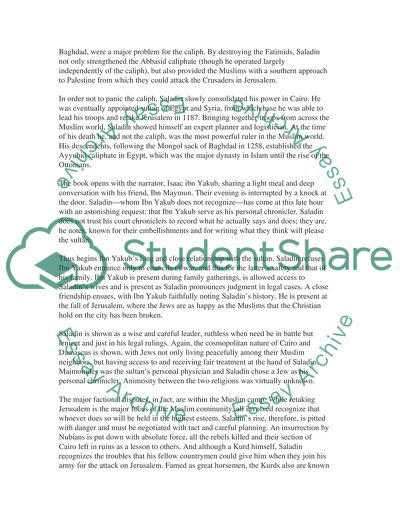Cite this document
(“Book Review of Book of Saladin by Tariq Ali Essay - 1”, n.d.)
Book Review of Book of Saladin by Tariq Ali Essay - 1. Retrieved from https://studentshare.org/literature/1500882-book-review-of-book-of-saladin-by-tariq-ali
Book Review of Book of Saladin by Tariq Ali Essay - 1. Retrieved from https://studentshare.org/literature/1500882-book-review-of-book-of-saladin-by-tariq-ali
(Book Review of Book of Saladin by Tariq Ali Essay - 1)
Book Review of Book of Saladin by Tariq Ali Essay - 1. https://studentshare.org/literature/1500882-book-review-of-book-of-saladin-by-tariq-ali.
Book Review of Book of Saladin by Tariq Ali Essay - 1. https://studentshare.org/literature/1500882-book-review-of-book-of-saladin-by-tariq-ali.
“Book Review of Book of Saladin by Tariq Ali Essay - 1”, n.d. https://studentshare.org/literature/1500882-book-review-of-book-of-saladin-by-tariq-ali.


